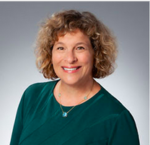
SAN DIEGO — Today, as we honor Martin Luther King Jr., I am thinking about how freedom, which seems so fundamental to human existence, almost always comes at a cost.
For the Jewish people, the blessing of freedom is deeply woven into our story and observance. Every morning and every evening we recite the Mi Chamocha prayer, thanking God for our freedom from bondage in Egypt. And for almost 1000 years, when Jews gather in the presence of the Torah, we recite the Acheinu prayer for the release of captives, saying “take them out from narrowness to expanse, and from darkness to light.” These words resonate deeply today as we welcome Doron Steinbrecher, Emily Damari, and Romi Gonen home and see them in the embrace of their families, free after 471 days in those dark and narrow tunnels. Getting them home, of course, came at a cost, and we are all trying to balance the relief at their homecoming, our hopes for their long road to healing and our anguish for the remaining hostages.
Last week, at the International Lions of Judah conference, Rachel Goldberg Polin, mother of murdered hostage Hersh Goldberg, shared that she feels so deeply connected to each remaining hostage she imagines embracing each one like they are her own family. Yet they have no idea who she is; they have never even met her. Today, I understand how she feels. On our Federation solidarity missions last December and April, we met Simona and Mandy, the mothers of Doron and Emily, both from Kibbutz Kfar Aza in Sha’ar HaNegev. These mothers’ anguish was a physical presence, and both have been tireless in their efforts to bring their daughters home. Watching all three of their reunions yesterday was overwhelming. These young women don’t know us, yet they have become our family too.
I am also thinking about the cost of freedom as we mark Martin Luther King day today, and reflecting on our experience last week on our Civil Rights missions to Montgomery, Selma, and Birmingham.
I am so inspired by the 15 women who took the time to travel with us to educate ourselves on some of the most painful aspects of our country’s history. We learned about the long, dangerous road to freedom traveled by the brave leaders of the civil rights movement, and we explored the continuing legacy of slavery and racism that continues to this day.
We heard firsthand from Lynda Lowerie, the youngest person on the march from Selma to Birmingham, who told us her story of being jailed and beaten many times before turning 15 and who has spent her entire life advocating for civil rights across the US.
We met 92-year-old Bishop Calvin Woods, a leader of the civil rights movement, who remembered friends and colleagues murdered while fighting segregation with nonviolent protest. I asked him what song from the movement continued to fortify him, and without hesitation, he belted out, “We Shall Overcome.” I won’t forget singing along with Bishop Woods, knowing that very soon, we will no longer have first-hand accounts of all of the years of struggle, strategy, sacrifice, and solidarity of the civil rights movement. It reminded me of our own struggles to keep the stories of Holocaust survivors alive.
There is far too much to share about our experience in Alabama here, and I know that I will be processing all that I have seen and heard for a long time. One quote from the Equal Justice Initiative stuck with me: “The most radical form of resistance to enslavement was survival and never giving away the capacity to love.”
Yesterday, watching Doron, Emily, and Romi reunite with their families, it was clear they had not only survived but had held onto the capacity to love, a true testament to hope.
We know that the next six weeks will be full of anxiety as we wait and watch for updates about the release of more hostages. We will feel the weight of every step and will likely experience moments of grief along with moments of relief. But today, along with Jews around the world, we share in the intense and complex emotion of this reunion and honor the sacrifices that make freedom possible.
May these stories of resilience –from Israel to Alabama– give us strength and inspire us to build a world of justice, dignity, and love for all.
*
Heidi Gantwerk is the President and CEO of the Jewish Federation of San Diego.